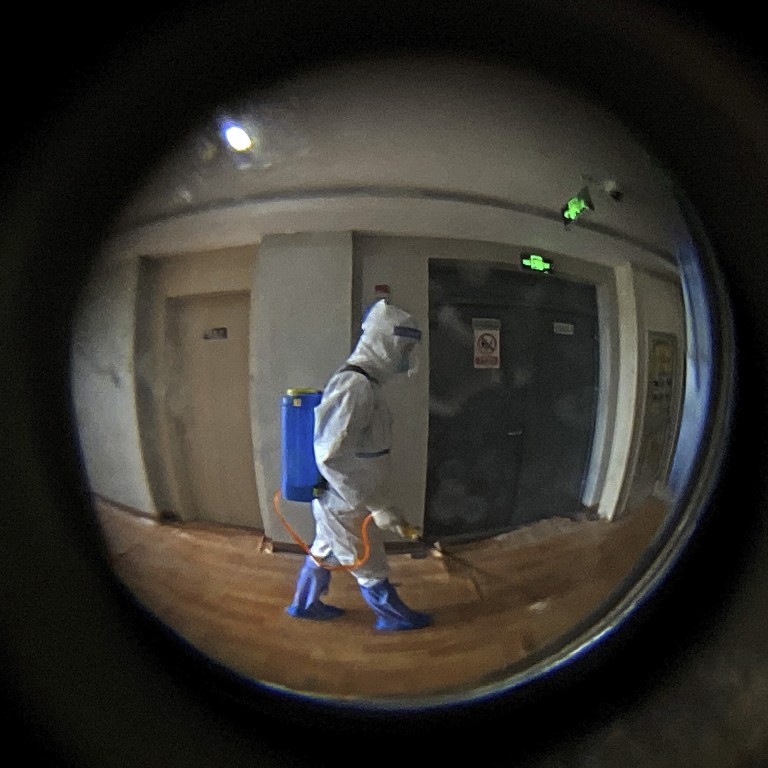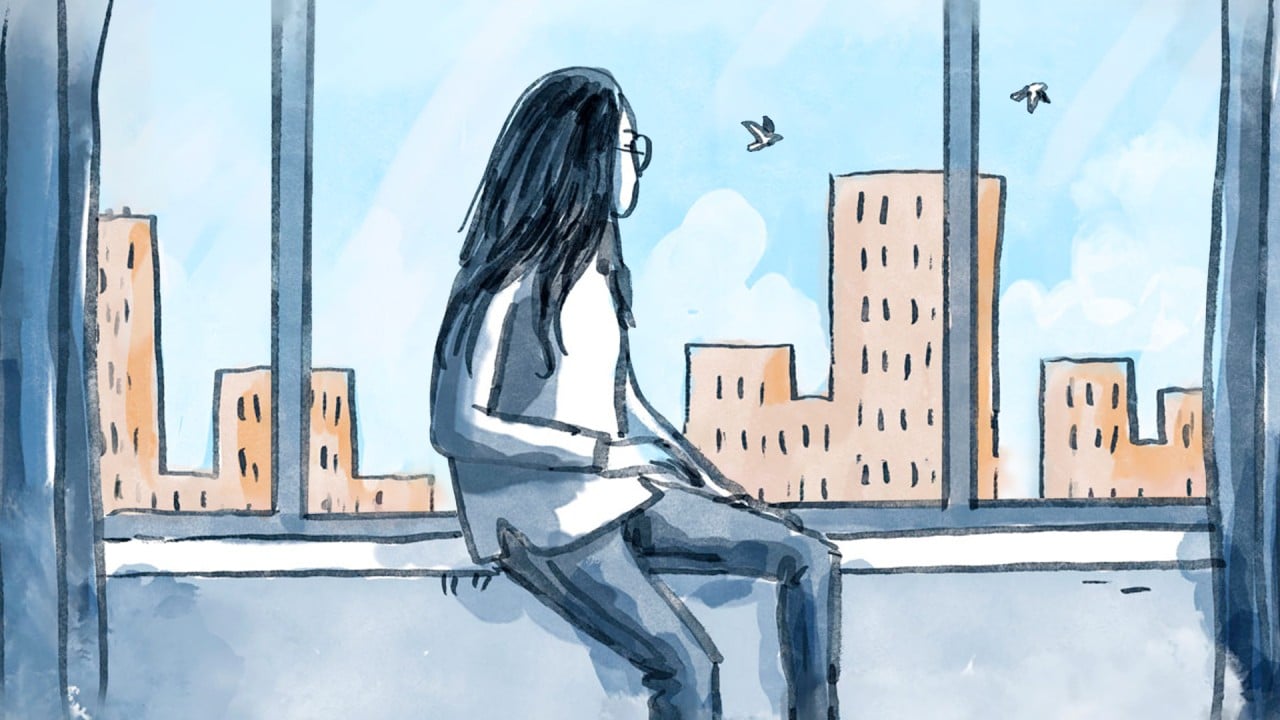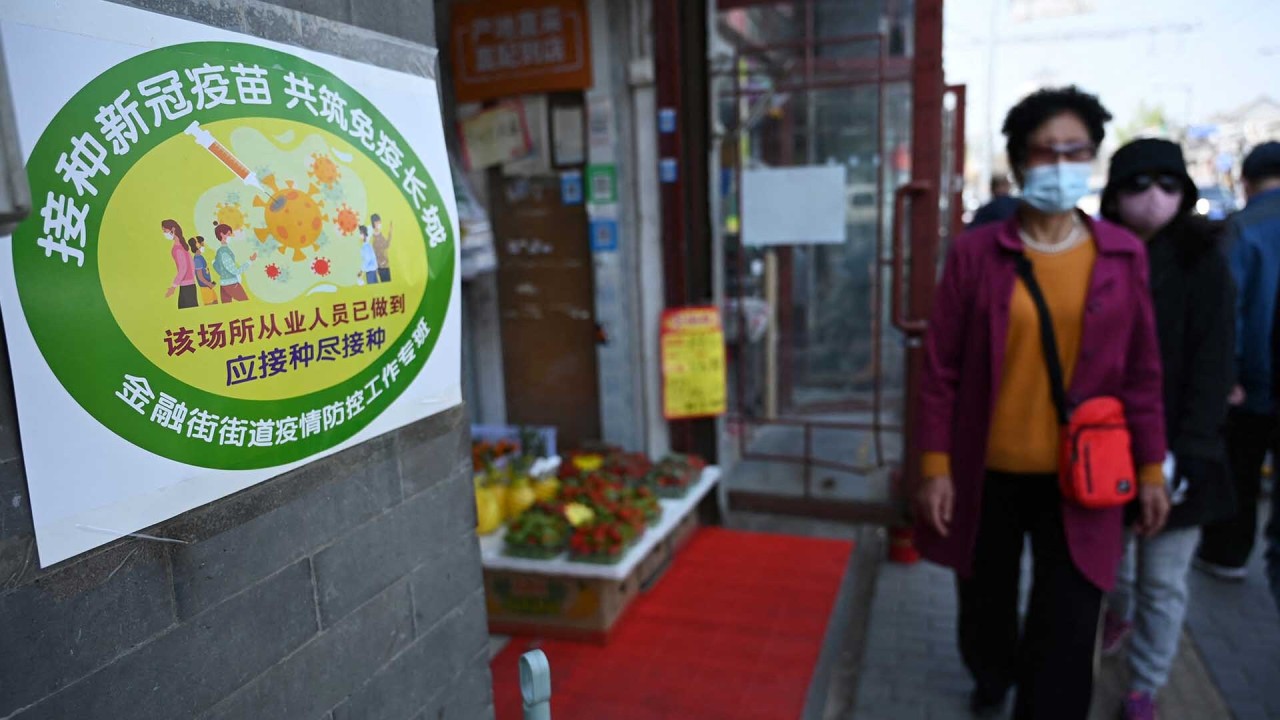
Explainer | China’s quarantine: how long, what does it cost and what is the food like?
- Rules on the length of quarantine, and where you must spend it, differ from city to city, but here is what to expect
- Arrivals in China also need to know which documents to prepare and how to get an all-important health code
In this series, we answer frequently asked questions about China’s strict zero-tolerance approach to Covid-19 including current entry restrictions, the length of quarantine and which tests travellers have to take. Have a question you want us to tackle? Drop us an email at [email protected].
Here are the most important things you need to know about quarantine if you are travelling to China.
1) How long is quarantine in China?
It varies from city to city or province to province, but generally lasts at least 14 days.
China wants permanent quarantine centres built for inbound travellers
For most cities (and the rural areas they govern), you have to stay at a quarantine hotel for the two weeks. But policies across the country use different combinations of a 14-day hotel quarantine, a further seven-day hotel or home quarantine, and a seven-day health monitoring period (when people can go out but are required to avoid social gatherings and to report their health conditions regularly to the local Communist Party committee, which contacts them on WeChat).
This is what quarantine looks like in some of China’s major cities:
Beijing (14+7+7)
- 14 days in a hotel, then seven days in a hotel or (for those who qualify) at home, then seven days’ health monitoring.
- People entering China elsewhere are barred from Beijing if they have not been in China for at least 21 days, and on arrival in the capital must complete the seven days’ health monitoring.
Guangzhou (14+7 except from Macau 0+14)
- 14-day hotel and seven-day hotel/home quarantine, although visitors from Hong Kong can replace the final seven days with health monitoring, while those from Macau have only the 14 days’ health monitoring.
Shenzhen (14+7)
- The city bordering Hong Kong has made an exception for Hongkongers, who may spend half their 14-day quarantine at their own property if they have one, followed by seven days’ health monitoring.
Shanghai (14+7)
- 14 days in a hotel and seven of health monitoring.
- Arrivals en route to neighbouring Jiangsu, Zhejiang and Anhui provinces can do a three-day hotel quarantine in Shanghai then 11 days in a hotel at their destination.
When travelling within China there is a risk that local governments in smaller cities will not recognise the quarantine completed at your city of arrival, and may require a further quarantine. Some have reported enduring more than 28 days’ quarantine in total.

08:21
Travel diary: 14 days in quarantine in mainland China
2) Can I choose my quarantine hotel in China?
No – at least, not in Beijing, Shanghai or Shenzhen, according to people sharing their quarantine experiences on social media.
Hotel rooms are arranged automatically by the Chinese authorities based on flight passenger lists. The hotel is usually determined by a traveller’s destination. In some cities, such as Guangzhou, you can choose between price categories – an important privilege, since the hotel stays are self-funded by travellers.
In Beijing, the hotel costs an average of about 350 yuan (US$50) per night, with meals charged separately at about 100 yuan per day.
3) How do I get to the quarantine hotel?
Travellers cannot go there on their own. There are shuttles from the airport. Several travellers told the South China Morning Post they were not informed where they were going in the bus, and a police vehicle cleared the way for the shuttle.
4) What is the food like in Chinese quarantine? Can I order in food or deliveries?
The hotel meals include ethnic and vegetarian options. Some people who spent quarantine in Beijing told the Post they had spicy bean curd every day.
Generally, external food deliveries are not allowed during the hotel quarantine period, but fruits are allowed in some places. It varies from place to place.
Goods deliveries, with the exception of tobacco, alcohol and other forbidden items, are sent to the door after security checks, but you can open your door only when meals are served or garbage is collected. Opening the door triggers an alarm, and travellers who leave their room are required to restart their quarantine from scratch.

01:55
China colour-codes businesses and buildings to reflect Covid-19 vaccination rates in Beijing
5) How many times do I need to be tested?
It varies from city to city but in Beijing, travellers told the Post they did at least four tests during the 14-day hotel quarantine: a nasal and throat swab test on the third and seventh days, and another on the 14th day along with an anal swab test. On the final day, surfaces in the room were also tested for traces of the coronavirus. During the seven-day hotel or home quarantine and seven-day health monitoring periods, they did at least one nasal and throat swab test.
6) What happens if I test positive while in quarantine?
If the positive result is confirmed by a second test, an ambulance will be sent immediately to take you to a hospital for doctors to decide your treatment. Tests of people who were on your flight and staying at your hotel will be increased, and their quarantine period will be extended.
7) Can people spend quarantine at home in China?
Some arrivals can spend all or part of their quarantine at their own property or that of their family.
Those who are under 14, over 70, pregnant, physically disabled or suffering from certain illnesses can apply to do so by showing proof and giving their address so that the party committee can fix an alarm to the door and set up a WeChat group to report their body temperature to medical staff daily.
For the additional seven-day quarantine in some cities, people who arrive alone or have families willing to quarantine with them or move out for them to do so can apply when they leave their hotel after their initial quarantine period.
Anyone else must quarantine entirely at a designated hotel.
China wants to keep health codes after the pandemic but users aren’t so sure
8) Which documents do I need to enter China?
Apart from travel documents, international travellers have to present results of a Covid-19 test and an antibody test, and a vaccination certificate if they have been inoculated. Travellers from Hong Kong and Macau need only show a negative Covid-19 test result, valid for seven days. Consult the Chinese embassy or consulate in your country or region if needed, and apply for a health code before you go to China.
9) How do I get a health code to travel to China?
The health code is a mandatory requirement of the Chinese government before international travellers board their flights. You need to download and log into WeChat, find the Health Code International Version program developed by the foreign ministry, provide a mobile phone number and other personal information, and declare your Covid-19 and antibody test results.
The online application may be complicated for people who have no Chinese ID card or Chinese mobile number, and some such applicants have had delays in receiving their verification codes, or had their applications rejected. The Chinese foreign ministry recommends people with no Chinese ID ask someone who has one to help them apply through WeChat.
10) How does China’s health code work and is it the same for all destinations?
No, cities (and rural areas, which are run by city governments) have their own unique health codes, with slight differences. If after quarantine you need to travel to another city, it is better to get that city’s health code installed in advance, or you may not be allowed to board the train or plane.
There may be different health codes for non-Chinese residents. For instance, if you are a non-mainland resident in Beijing, you need to use a health code app called Health Kit, instead of the Beijing Health Code app that locals use.







